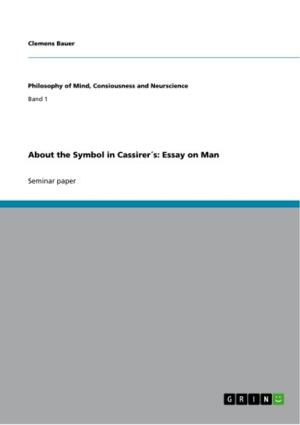| Author: | Matthias Kammerer | ISBN: | 9783638899079 |
| Publisher: | GRIN Publishing | Publication: | January 23, 2008 |
| Imprint: | GRIN Publishing | Language: | English |
| Author: | Matthias Kammerer |
| ISBN: | 9783638899079 |
| Publisher: | GRIN Publishing |
| Publication: | January 23, 2008 |
| Imprint: | GRIN Publishing |
| Language: | English |
Seminar paper from the year 2005 in the subject Business economics - Miscellaneous, grade: 1,3, University of Northampton, course: The political economy of China, 21 entries in the bibliography, language: English, abstract: The Three Gorges Dam, one of the largest engineering projects in the history of mankind, is on the brink of completion. The construction started in 1994 and once completed in 2009, it will be the world's largest men-made reservoir with a capacity of nearly 40 billion m3 and a length of 663km, and will finally submerge an area of 1040km2. (Miller et al.2005; Yong n.d.) The dam is located in Hubei province on the Yangtze, China's longest river and the third longest river worldwide. (International Rivers Network 2004) Sun Yat-sen first proposed the idea of this hydroelectric dam in 1919, but due to war, civil war and revolution the plan was shelved. Mao revived the thought in the mid 50s because of major floods, but the chaos of the Cultural Revolution buried it again until the economic reforms in the 70s and 80s underlined the urgent need for electricity for the rapidly growing country. (Reference.com 2006; Wikipedia n.d.; Kennedy 2001; Starr 2001) Premier Li Peng finally pushed it through the rubber-stamping National People's Congress in 1992, but the project was so highly controversial, that a level of opposition occurred that was unprecedented before. (166 delegates voted against the project, nearly one third abstained). (Starr 2001; Gamer 2003; Cannon 2000) At the moment, as the dam nears completion, the dispute between supporters and opponents continues within China as well as overseas. In my essay, I want to bring forward the main arguments whether the Three Gorges Dam is a good thing for China or not. In the following section I will highlight the multiple benefits of this project. Subsequently, after going into detail concerning its disadvantages, I will finally survey if a single statement is possible and appropriate whether or not this project is favourable.
Seminar paper from the year 2005 in the subject Business economics - Miscellaneous, grade: 1,3, University of Northampton, course: The political economy of China, 21 entries in the bibliography, language: English, abstract: The Three Gorges Dam, one of the largest engineering projects in the history of mankind, is on the brink of completion. The construction started in 1994 and once completed in 2009, it will be the world's largest men-made reservoir with a capacity of nearly 40 billion m3 and a length of 663km, and will finally submerge an area of 1040km2. (Miller et al.2005; Yong n.d.) The dam is located in Hubei province on the Yangtze, China's longest river and the third longest river worldwide. (International Rivers Network 2004) Sun Yat-sen first proposed the idea of this hydroelectric dam in 1919, but due to war, civil war and revolution the plan was shelved. Mao revived the thought in the mid 50s because of major floods, but the chaos of the Cultural Revolution buried it again until the economic reforms in the 70s and 80s underlined the urgent need for electricity for the rapidly growing country. (Reference.com 2006; Wikipedia n.d.; Kennedy 2001; Starr 2001) Premier Li Peng finally pushed it through the rubber-stamping National People's Congress in 1992, but the project was so highly controversial, that a level of opposition occurred that was unprecedented before. (166 delegates voted against the project, nearly one third abstained). (Starr 2001; Gamer 2003; Cannon 2000) At the moment, as the dam nears completion, the dispute between supporters and opponents continues within China as well as overseas. In my essay, I want to bring forward the main arguments whether the Three Gorges Dam is a good thing for China or not. In the following section I will highlight the multiple benefits of this project. Subsequently, after going into detail concerning its disadvantages, I will finally survey if a single statement is possible and appropriate whether or not this project is favourable.















